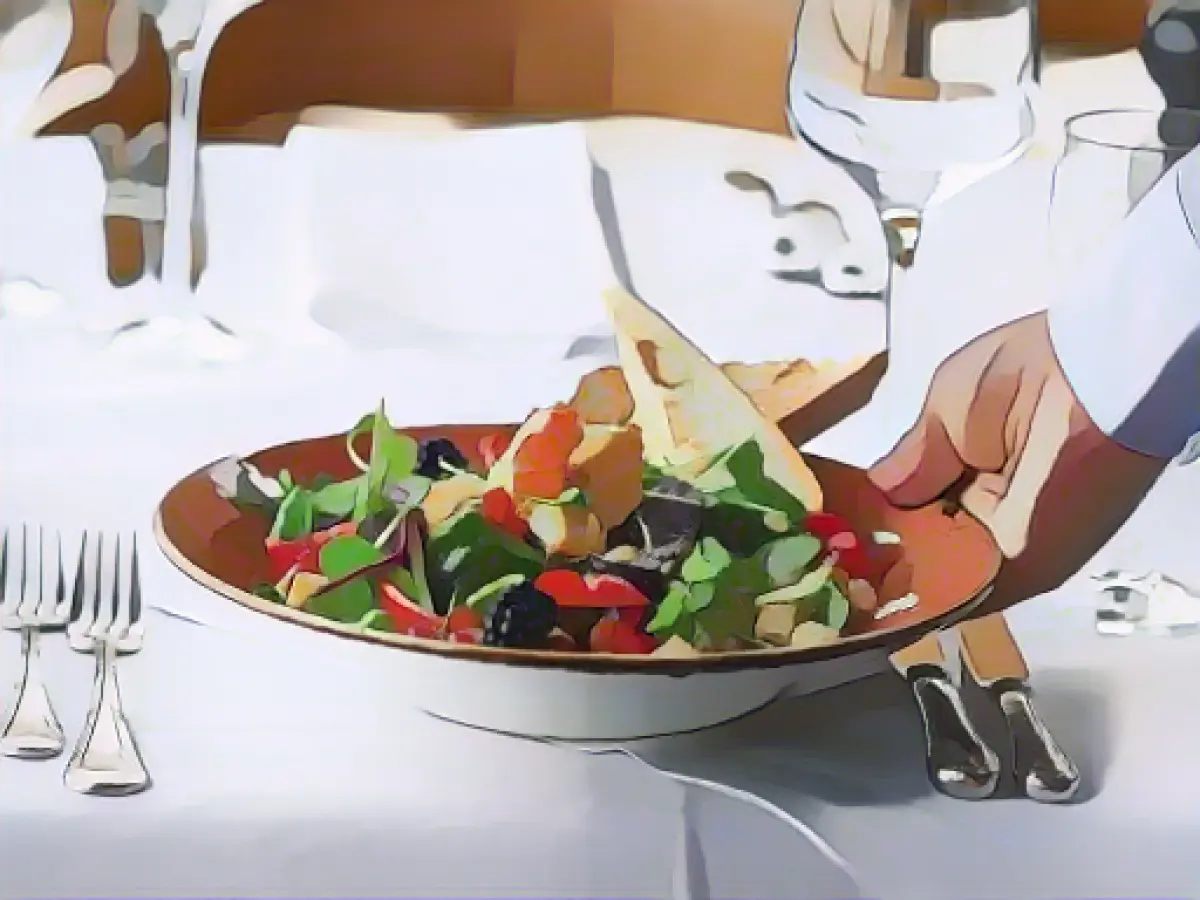Gastronomy fears end for hundreds of restaurants
The planned return to a higher tax on restaurant meals could lead to the closure of hundreds of businesses in Lower Saxony, according to industry association Dehoga. "We are in a worse position than in 2019," warned Rainer Balke, Managing Director of the Lower Saxony Hotel and Restaurant Association (Dehoga), on Friday. During the coronavirus pandemic, around 3,000 hospitality businesses in the state have already been lost. Their number has thus fallen to just over 17,000. Now up to 1,000 more businesses are threatened with closure, said Balke, citing a survey of companies. Thousands of people could lose their jobs as a result. "I don't think politicians have factored all this in," said Balke.
In rural areas, catering businesses in Lower Saxony are already barely represented. "This is an indictment of a tourism state like Lower Saxony wants to be," said Balke.
According to the chief budgets of the SPD, Greens and FDP, the federal government has agreed that a tax of 19 percent instead of the current 7 percent will apply to food in restaurants from January onwards. The lower rate was introduced in the first months of the coronavirus crisis and later extended due to the energy crisis and high inflation.
Balke explained that turnover in many businesses was still below that of 2019, while costs had risen at the same time. Higher prices for restaurant guests are therefore virtually unavoidable if a higher tax rate applies again. "That has to be the case," said Balke. The businesses would have no financial leeway to absorb the increase themselves. The industry therefore feared that many guests would no longer or only rarely be able to afford to visit a restaurant.
The opposition CDU has a similar view. "This is a bitter blow, especially for Lower Saxony as a tourist destination, our restaurateurs, but also for the people in the state, who will now have to pay more again," said Parliamentary Secretary Carina Hermann. "If other businesses are unable to withstand the price pressure, it will be down to the traffic lights."
Finance Minister Gerald Heere said last week in the state parliament that the state did not have enough money available to shoulder an extension of the tax cut of around 155 million euros per year itself. "If anything else is to happen, the federal government must deliver now," said the Green politician. It does not look like that will happen.
However, Dehoga Niedersachsen does not want to give up hope just yet. There is still a small window of opportunity before the Bundestag Budget Committee meets next Thursday, said Balke. He appealed to restaurateurs to explain to federal politicians once again what the higher tax would mean for their businesses, employees and families.
According to a survey by the Chambers of Industry and Commerce (IHKN), the 19 percent VAT rate is the development that is currently causing the greatest concern for restaurant operators.
However, there was not only criticism of the decision. Monika Schnitzer, an economist, said on Deutschlandfunk radio on Friday morning: "The coronavirus pandemic is over. It's not reasonable to continue to provide extra support for the catering industry."
The proposed increase in taxes on restaurant meals from 7% to 19% in the hospitality industry could further strain businesses already struggling due to the pandemic, potentially leading to the closure of up to 1,000 more establishments in Lower Saxony. This increase could also result in higher prices for customers, making visits to restaurants less affordable for many.
Source: www.dpa.com








